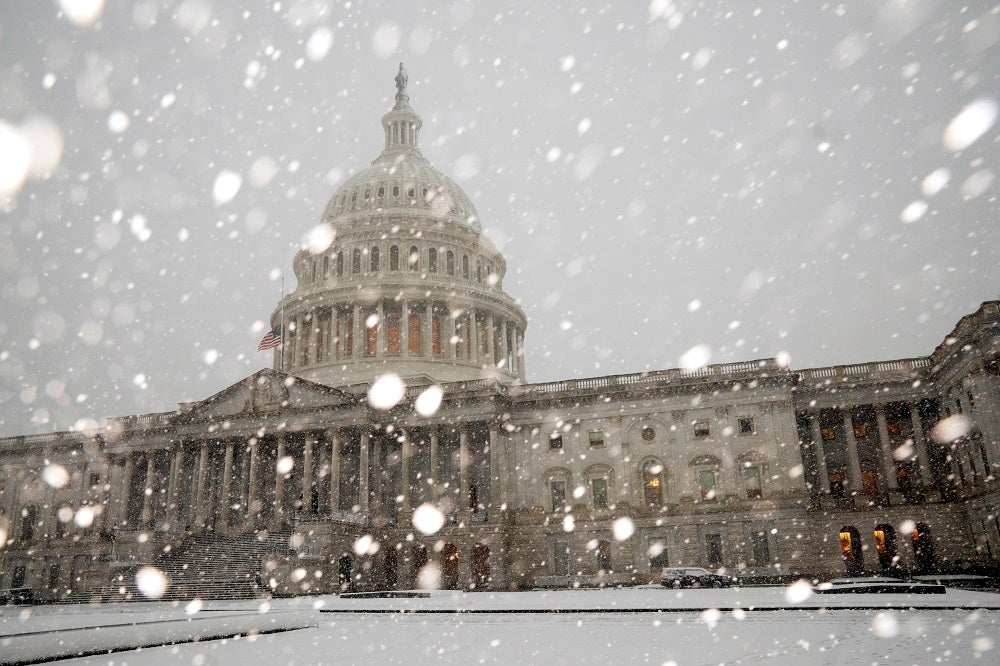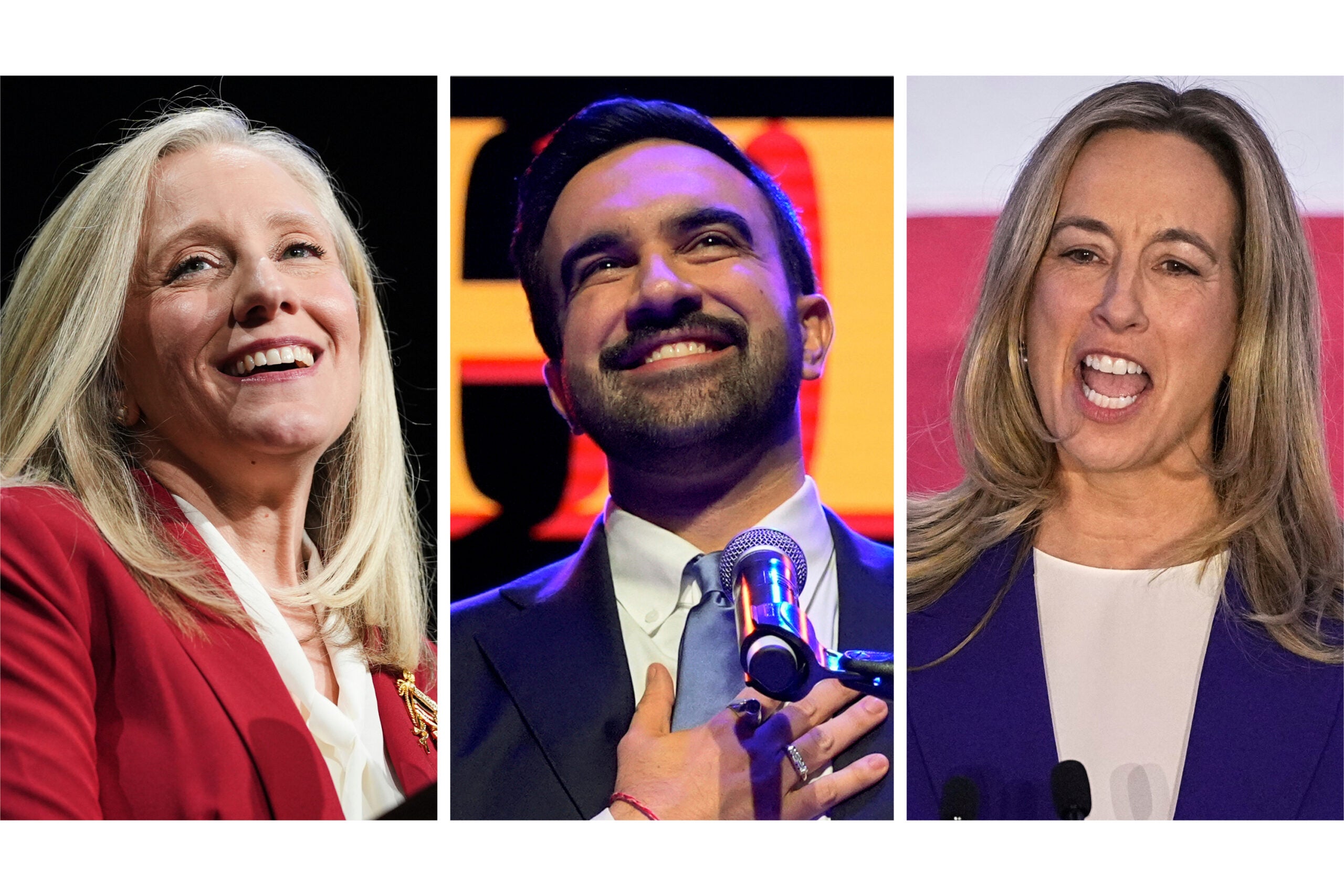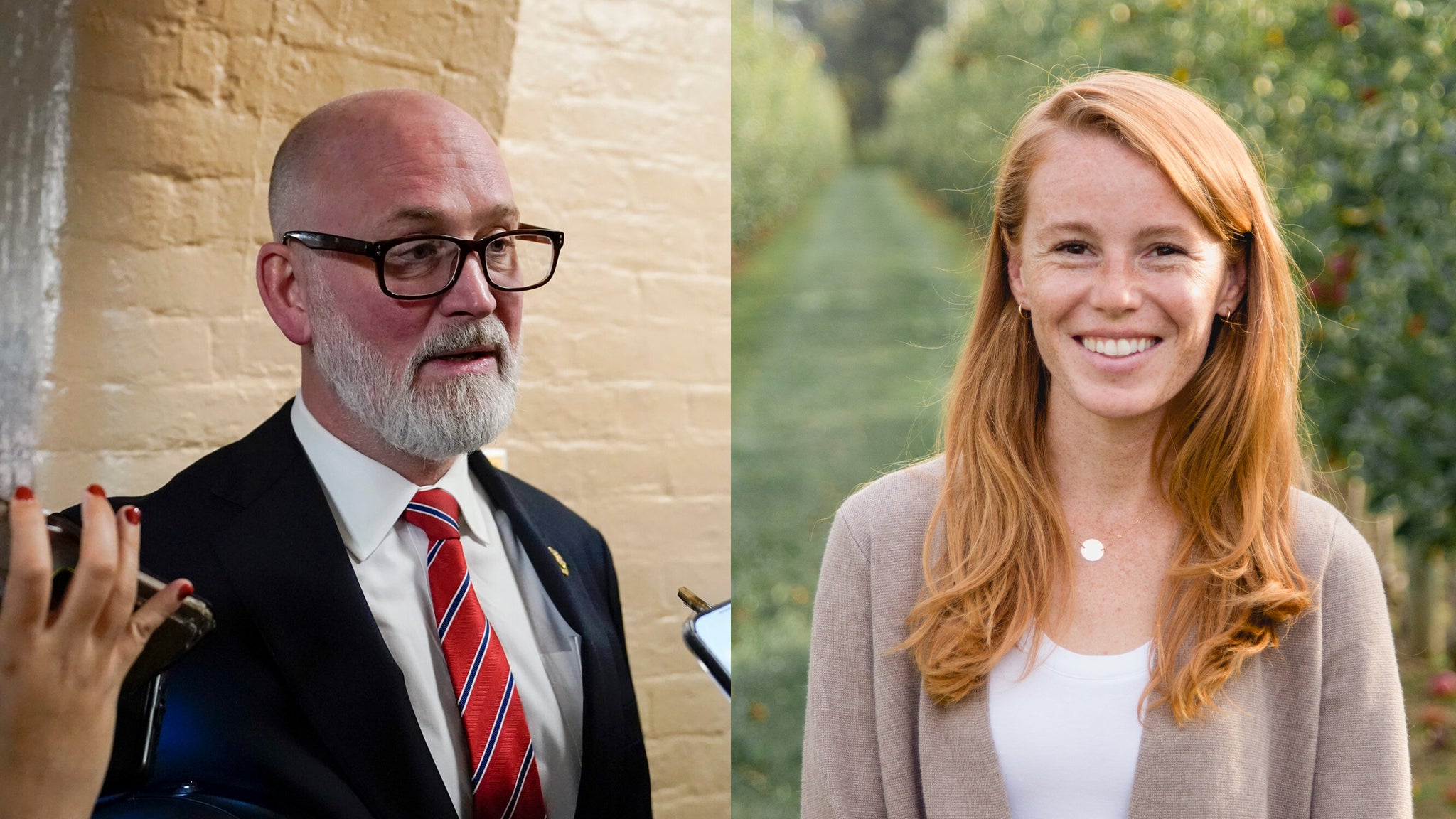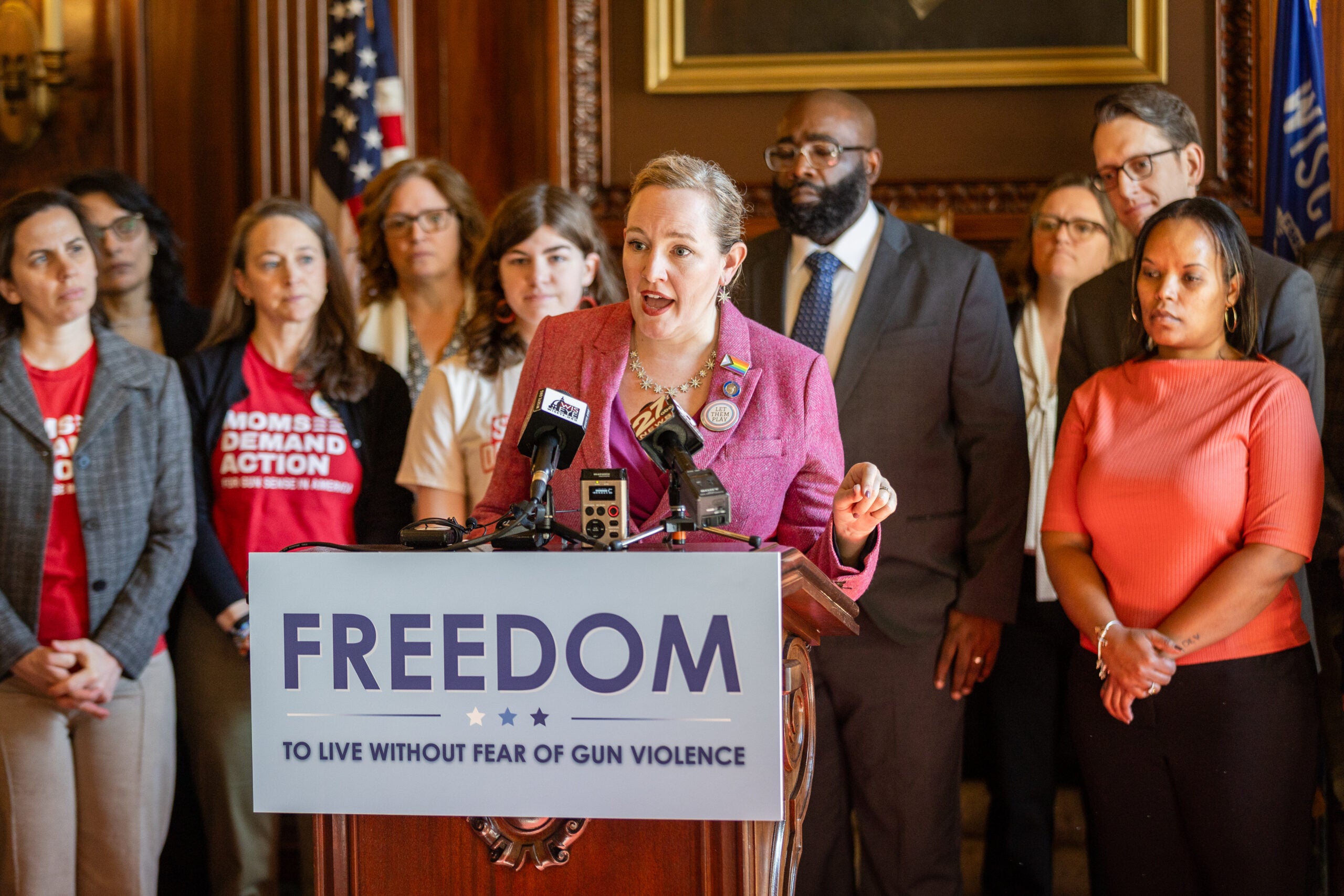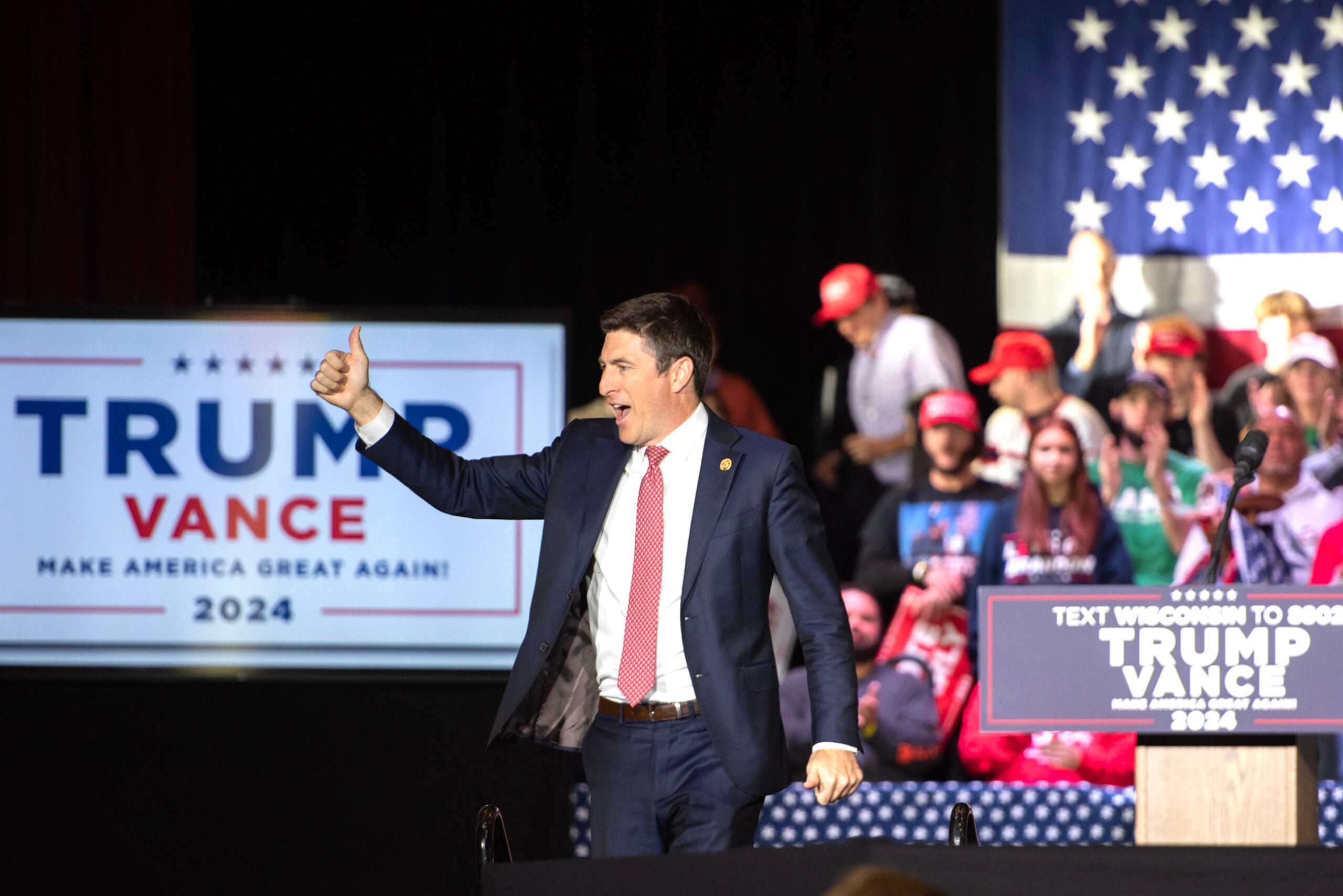Two of the leading Democratic candidates for U.S. Senate made significant personal loans to their campaigns last year in their bids to defeat incumbent Republican U.S. Sen. Ron Johnson.
But when looking only at contributions from donors other than the candidates last quarter, Lt. Gov. Mandela Barnes was the leading fundraiser in the Democratic field.
Reports filed with the Federal Elections Commission showed Milwaukee Bucks executive Alex Lasry has loaned his campaign $2.35 million since the beginning of the campaign, including $1.55 million last quarter. Between loans and contributions, Wisconsin State Treasurer Sarah Godlewski has invested a total of $1.795 million in her campaign, including $750,000 last quarter.
News with a little more humanity
WPR’s “Wisconsin Today” newsletter keeps you connected to the state you love without feeling overwhelmed. No paywall. No agenda. No corporate filter.
Lasry and Godlewski face Barnes and Outagamie County Executive Tom Nelson among others in the Democratic primary for Senate. Neither Barnes nor Nelson have reported any loans to their campaigns.
Barnes led the field in contributions from individual donors in the last quarter, pulling in more than $1.2 million from Oct. 1 to Dec. 31. Lasry raised roughly $473,000 from individual donors in the same period, followed by Godlewski who raised more than $364,000 and Nelson who raised roughly $216,000.
Anthony Chergosky, an associate professor of political science at the University of Wisconsin-La Crosse, said fundraising is especially important in a primary campaign because voters are still forming opinions of the candidates. Given that, he said he wasn’t surprised to see Lasry and Godlewski contribute to their own races.
“Relying on your own money is something that can be helpful in the short term. It can get you through this next phase of the campaign,” Chergosky said. “But it is not necessarily a good sign for them that they are relying so much on their own money.”
When looking at all contributions to the candidates — including personal loans — since the campaign cycle began, Godlewski had raised almost $3 million, Lasry about $5.1 million, Barnes about $2.4 million and Nelson almost $1.2 million.
When looking strictly at how much cash each of the campaigns had on hand at the end of last year, Godlewski reported $1.3 million, Lasry $1.1 million, Barnes $1.1 million and Nelson about $484,000.
Johnson, who officially announced his reelection campaign Jan. 9, raised about $711,000 in the final quarter of 2021 and has raised about $5 million since the current cycle began. He reported roughly $2.5 million cash on hand. Taken as a whole, Johnson’s numbers trailed the Democratic field.
“I do think that Ron Johnson’s numbers are underwhelming, but I don’t know if that really matters so much in the long term,” Chergosky said. “If this election is just a straight up referendum on Joe Biden, and people are basically casting their vote on whether or not they like or don’t like Joe Biden, then the fundraising numbers aren’t really going to matter.”
Johnson has said he won’t put his own money into this campaign, but self-funding helped him get his start in politics. In 2010, Johnson spent roughly $9 million of his own money on his campaign against former Democratic U.S. Sen. Russ Feingold.
Editor’s note: This story has been updated to reflect U.S. Sen. Ron Johnson’s most recently filed campaign finance report.
Wisconsin Public Radio, © Copyright 2025, Board of Regents of the University of Wisconsin System and Wisconsin Educational Communications Board.

